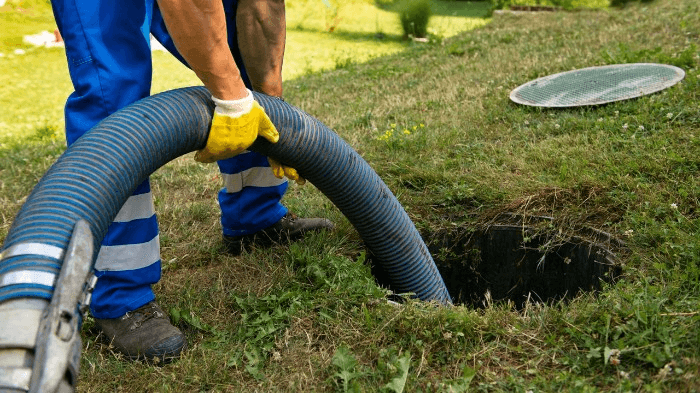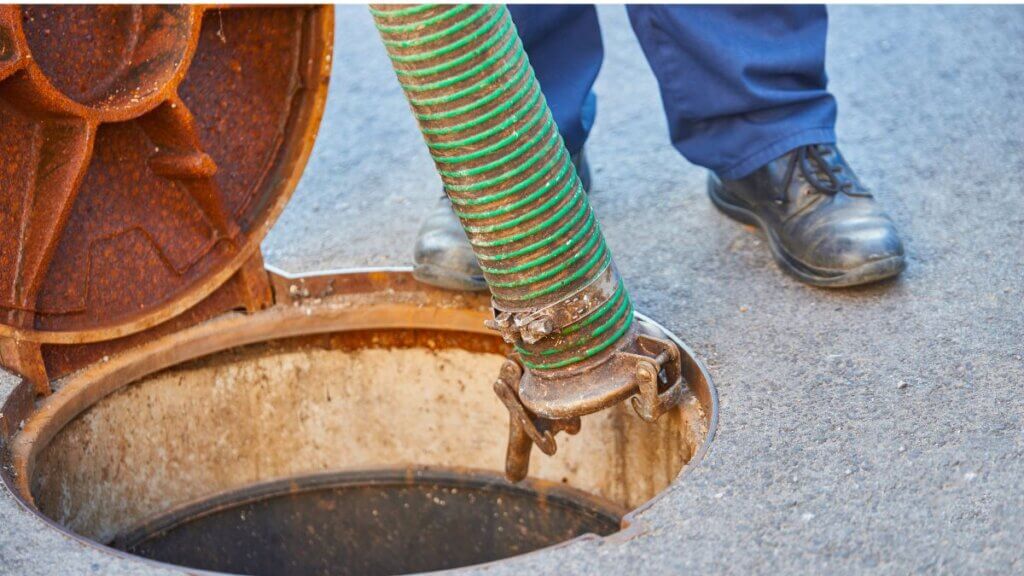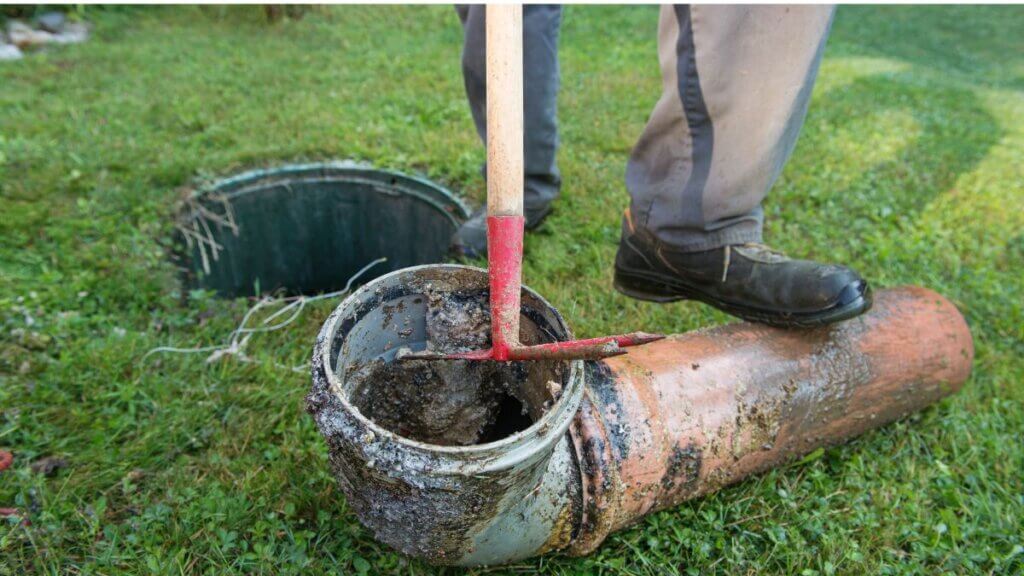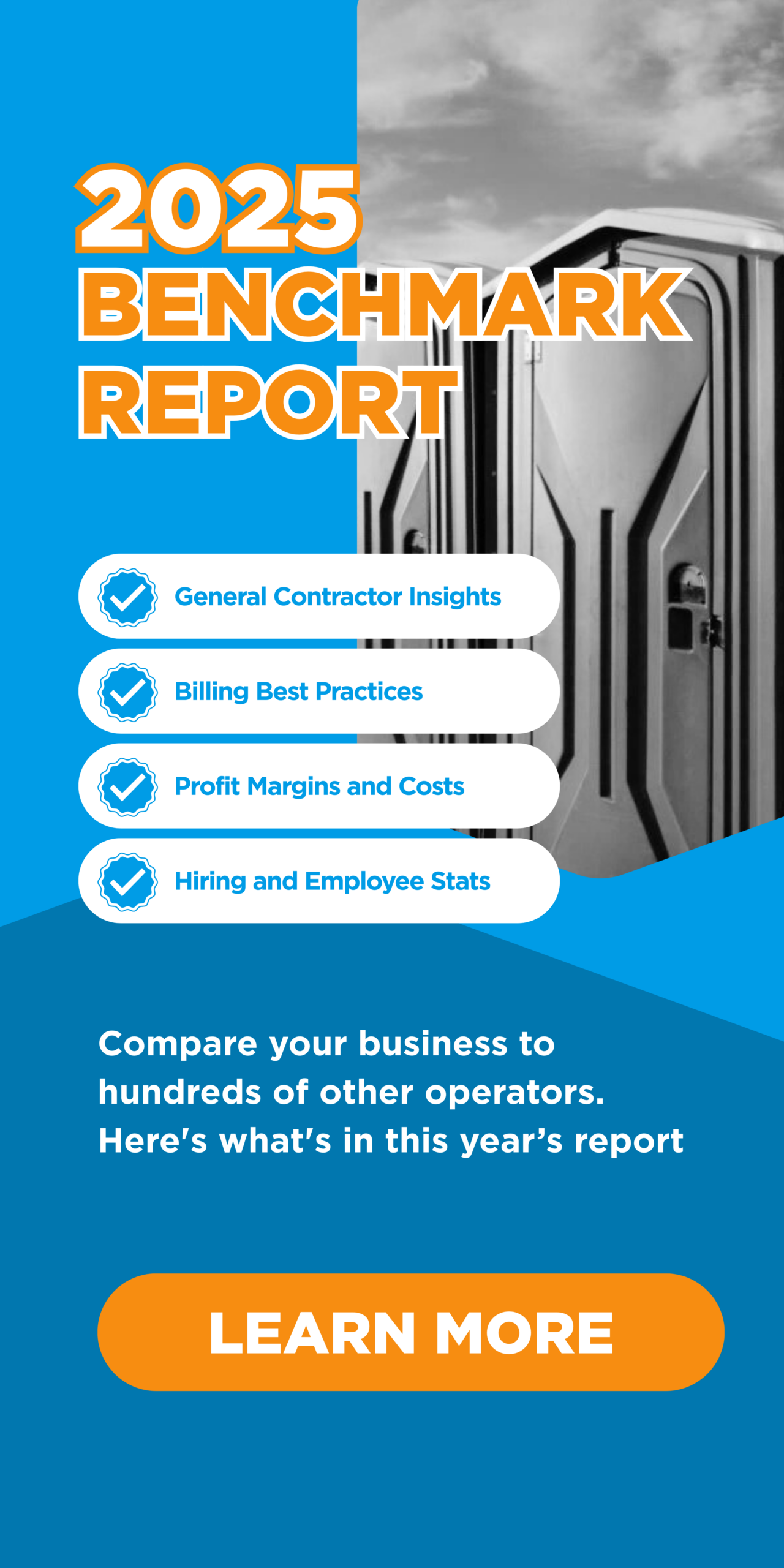Starting a Septic Business in 2025 – The Ultimate Guide
Are you looking to start a septic business, but don’t know where to begin? Starting and running a successful septic business requires knowledge of the industry and best practices. This guide will provide an overview of what it takes to start and maintain a profitable septic business.
You’ll learn everything from buying equipment, obtaining licenses and permits, hiring and managing employees, marketing your business, as well as the benefits of software to help scale your organization. With this comprehensive resource in hand, you can be confident that you have all the information needed for success!

Pros and Cons of Starting a Septic Services Business
There are considerable positives to working in the septic industry including,
- Good Money – Septic tank installation costs about $5,000
- Provide Value – Make the world a cleaner place!
- Large Market – 60M+ Americans rely on septic tanks (and even more businesses)
- Consistent Work is Needed – Very little downtime if you market yourself right
However, there are some cons that are worth considering:
- Investment Required – Septic pump trucks are expensive (more on that below)
- Messy Work – Septic cleaning is not the most glamorous job
It’s important to weigh each of these considerations before taking the plunge into the septic services industry! For those who cannot stand messy work, or don’t have the right startup capital, another business model may be better for them. However, if you don’t mind the work and have the capital to invest, then read on!
Industry Size and Growth of Septic Business
The septic industry is a growing one. With no sign of it slowing down, here are some numbers you may want to consider:
- 7 billion industry in 2023
- 2.9% compound annual growth rate
If you could capture even half a percentage of the U.S. Market in 2025 that could result in a seriously lucrative business. And it’s no wonder people are turning to septic services as a business model. With 2.9% growth every year since 2018, there are hundreds of residential and commercial jobs waiting to be filled by people smart and brave enough to start this venture.
These numbers are a direct reflection of the number of households rising. The more people who buy homes the more opportunities there will be waiting in the septic industry. With septic growing faster than the economy overall, there is great demand that needs more manpower to capture.
Want to know how top pumpers are growing fast? Check out our free guide here!

Residential Pumping vs Commercial Considerations
The target markets for commercial septic operators vary depending on the type of services offered. Typically, these include homeowners, property management companies, restaurants, hotels and resorts, industrial complexes, schools and universities, medical facilities, and other large-scale institutions with wastewater treatment needs. Homeowners may require a septic operator for general maintenance and repairs or for emergency services such as a major tank failure.
Property managers, on the other hand, usually require routine maintenance and repairs for their entire septic system, as well as inspections to ensure that all components of the system are functioning properly. Restaurants, hotels, and resorts may need regular pumping services due to high levels of wastewater generated by their patrons. Industrial complexes, schools, universities, and medical facilities may require more extensive septic services such as grease trap maintenance or leach field repairs.
There is not a lot of downtimes when it comes to running a septic company. According to this source, pumping of septic tanks and restaurant grease traps now makes up about 25 percent of his sales.
Additionally, for residential services, homeowners usually need their septic tank pumped every 2-4 years which means you’ll be busy!
Startup Costs and Requirements of Septic Waste Business
Starting a septic business can be an exciting and rewarding venture, but it is not without its challenges. Before you embark on this journey, it is important to understand the startup costs and requirements involved in running a successful septic waste business. From understanding customer demand to adhering to safety regulations, there are many factors that must be taken into consideration when setting up your business. Additionally, you must have adequate capital for purchasing equipment and supplies as well as knowledge of industry trends in order to remain competitive. With the right preparation and research, however, you can set yourself up for success in the septic waste industry.
Here’s a brief summary of everything you’ll need to get started:
- Tank Truck
- Waste Containers
- Grease Trap Cleaning Equipment
- Inspection Cameras
- Drain Cleaning Machines
- Sewer Hoses and Augers
- Protective Gear (gloves, coveralls, etc.)
- Vacuum Trucks and Pumps
- Maintenance Parts (gaskets, seals, etc.)
Among all of the parts listed above, the one that is the most important is the pump truck, which will be absolutely necessary to get your business off the ground.
Purchasing a Pumper Truck
When buying a new pumper truck it is important to consider things like tank capacity, horsepower and vacuum pump power in order to do jobs faster and increase profitability. It is also important to spec out the truck based on different variables such as waste disposal price, location of customers or waste treatment centers, and terrain types.
Here are some other major things to consider when choosing/upgrading your truck:
- Get a Pump With 3,000 to 3,300 Gallons –If you have a big enough tank you can make more trips to service more customers. This results in less wear and tear on your vehicles and increased profitability. In addition, the trend to opt for aerobic tanks allows for an easier cleaning experience leaving fewer settled solids on the bottom and clearer effluent to be distributed into the soil.
- Get a Steel Tank –There is a debate between aluminum and steel tanks, but its almost always a better idea to get a steel tank. Steel is more resistant to corrosion and handles stress and strain better than aluminum. The advantage of an aluminum tank is that it is lighter, but you can make up the difference by getting a tri-axle set-up to distribute the weight more evenly.
- Manual Shifting — Investing in a manual pump truck is a simple way to save money and invest in these other specs of your truck. The price difference between manual and automatic is about $10,000 to $13,000, and that could get you a higher power engine. All you’d have to do is hire a driver who can operate manually and that shouldn’t be too hard.
- Cost of Pump Truck — Generally, A nice used pump truck will cost between $50,000 and $150,000. It depends on whether you’re investing in the biggest tank, with a 2,000 psi water pump and a high-end engine with amazing horsepower, or investing in the truck that’s going to get your business off the ground and moving.

Getting Other Septic Equipment
When starting a septic business, it is important to consider where to get the necessary equipment. There are several options available for obtaining septic tanks, pumps, and other related equipment.
One option is to purchase new equipment from manufacturers. This can be done through specialized suppliers who carry septic tanks and other components in a variety of sizes. However, buying new equipment is often expensive and may not be feasible for all businesses.
Another option is to purchase used or reconditioned equipment from suppliers who specialize in selling used components. This can be a more cost-effective alternative since the costs associated with purchasing new equipment will be significantly reduced. Additionally, many suppliers offer warranties on used equipment, providing an added layer of protection and peace of mind.
Ultimately, the size of the tanks you need for your business will depend on the services you are offering and how many customers you plan to serve. Larger tanks typically come with additional benefits such as increased capacity and easier maintenance, but they also come with higher upfront costs.
By carefully considering all your options, you can make the best decision for your business and ensure that you are well-equipped to meet the needs of your customers.
Competitive Research for Septic Companies
After you have all your equipment – and most importantly – the truck you’re going to need to start your septic enterprise, you should do competitive research. You’ll want to look at competitors, figure out your pricing, and become familiar with the industry before you start pitching and marketing your services.
Here are the steps:
- Research the competitors in your area: Look into the services and prices offered by competitors in order to gain an idea of the types of customers they’re targeting and how their offerings differ from yours.
- Understand industry standards and regulations: Sit down with local experts to gain a better understanding of the regulations, safety requirements, and industry standards for septic services. These rules may vary based on your location, so be sure to familiarize yourself with them.
- Research pricing models: Gather data on the pricing models of your competitors to understand the range of prices that are acceptable in your area. This will help you determine what pricing model works best for you, and how to price your services competitively.
- Evaluate customer feedback: Read reviews and testimonials from customers of your competitor’s businesses to gain an understanding of their service quality and customer experience. This will help you identify areas where you can improve your own service offering and provide a more satisfactory experience to potential customers.
- Monitor industry trends: Keep an eye on new advancements in the septic services industry, as well as any changes in customer preferences or demands. Staying up-to-date with these developments will help you ensure that you are providing services that are in line with the expectations of your customer base.
Advanced Competitive Research Tips
- Improving Marketing – The better job you do of explaining the benefit of working with your company, the better your odds are of standing out from the crowd. Even in a relatively non-competitive market like septic pumping, competitive research helps you understand why your business is valuable on the market.
- Identify Market Gaps – Everyone can’t be good at everything. By looking at your competitors you can discover their weaknesses and make those your strengths. For example, they may be the fastest at pumping but lack good customer service based on the reviews. Customer service could be your unique selling point!
- Planning for the Future – By keeping up with changing trends, you can see problems before they happen and offer solutions. Improving your service with customer feedback, more strategic pricing, or upgrading equipment can future-proof your business.
Choosing a Septic Service Area
After you know what your competitive edge is, you can start planning your service routes. Depending on your region, this could be super simple or pretty complicated. In rural areas, you might expect to drive long distances to reach customers and businesses; however, in the city, you might want to restrict your service area based on demand for your services.
Among where you live, there are other considerations. For instance,
- Regulations: Make sure to research and abide by all local regulations and industry standards for septic services. These may vary from region to region, so it is important to familiarize yourself with the requirements for your specific area.
- Population: When selecting a service area, consider the population density of the area. If there is an abundance of potential customers, this could be a great opportunity for your business. However, if the population is sparse and not many people are likely to need septic services, it might not be worth investing in an area with few potential customers.
- Terrain: The terrain of a service area can also affect the ease and cost of providing services. For example, flat terrain will make it easier to access sites and perform services, while hilly terrain can make it more difficult.
- Resources: Finally, consider the resources available in an area for providing septic services. This includes access to water sources, nearby suppliers of equipment and materials, and qualified personnel who have experience in septic systems. All these factors will impact your ability to provide efficient services.
- Demand: While there may not be a lot of demand for septic services in rural areas, it may be a booming business venture in the city. Weigh in where you’d like to set up a station for your operations – it will impact a lot of decisions down the line.
Route Optimization Software
One of the key parts of running a septic business is making sure your routes are optimized. Route optimization means that your drivers are spending less time going between jobs based on various pickup/drop-off locations scattered throughout your service area. Route optimization may be the #1 thing you can do to increase profitability.
If you’re looking for good route optimization software, be sure to learn more about it here!
Getting Licensed as a Septic Pump Operator
Once you have your region mapped out, you may be ready to hit the ground running – not so fast. You still need to get licensed! Getting licensed isn’t a very intimidating process as it only requires a little bit of research and some patience with the application process.
State Requirements for Septic
Each state has different requirements. For example, in Michigan, the requirements are a little different. A person is not eligible for a license without completion of a 30-hour course undertaken within two years of applying for the license. From January 2010, this may go up to 30 hours worth of classes.
Once they are awarded the license, they have to renew it every 5 years. This is just one example of state requirements. It’s important, therefore to look at your local government’s policies around getting certified. A helpful resource to look at is the EPA as well, which has some national coverage on what you need to stay compliant with other governing bodies.
Hiring a Septic Operations Team
You may not want to hire a team when first starting your septic services business. But it is important to keep this in mind as your business grows. Hiring is a big part of scaling your business so that you can become more profitable.
Job Duties of Septic Service Tech
Think of these job duties as your own when you first get started – it may aid you in your research process as you look to understand your day-to-day job responsibilities. If you’re already on your way to growing, this may help you hire the right people for the job. Among other things, your service techs will be responsible for:
- Fulfilling designated routes as assigned by the route coordinator, maintaining time and production standards set for routes
- Maintains “service-oriented” goals that set the company apart from competitors
- Maintaining the condition of equipment, reporting specific problems via work orders, and ensuring preventive maintenance by adhering to “due for service” schedules as is reasonable and as timely as possible
- Constantly striving to maintain safety standards as established by company policy
- Maintain clean stocked work vehicle
These are day-to-day duties. You may want to include other qualifications in posting a job online including:
- Valid driver License
- Clean Driving record
- Good map reading skills
- Good physical condition – able to lift 70 pounds, able to climb in and out of the truck
- Drug-and alcohol-free workplace
- Able to pass DOT physical
- Available on weekends
This is just an example job posting and of course, you may need to edit this as your business grows to accommodate your different business needs. Cleaning of equipment or a proper understanding of installing septic tanks may be required. This is just a template for what you may want from a service tech starting out!

Importance of Septic Techs
Experienced pumpers possess a unique set of abilities and characteristics to perform their job duties. Not only must they have excellent customer service skills to interact with people on a daily basis, but they must also be physically fit to dig, lift, drag and climb around the trucks and trailers. They must be knowledgeable in all aspects of the equipment such as the pumps, hoses, tanks, and trailers.
Good pumpers must also possess an aptitude to diagnose problems quickly, identify faulty parts or components, understand how they work, and make repairs on the spot. They should be willing to learn new things and take on additional responsibilities as their skills develop. A successful pumper is also a team player, understanding that their success depends on the success of their team.
The success of a business can be directly traced to the quality and dedication of its employees. Finding qualified and hardworking team members is essential for achieving maximum profitability, as a knowledgeable and reliable staff will increase monthly revenue. Furthermore, retaining good workers over the years will add up significantly to your bottom line, while also helping to improve your reputation in the local community.
Therefore, it is essential to invest time and resources into your recruitment process through local ads, as they can be an invaluable source of finding qualified personnel. Taking the extra steps to ensure that you hire skilled workers who possess a strong work ethic will help take your business to the next level.
Learn how to hire faster and keep people longer with this free guide!

How Much to Pay Service Techs in Septic
Many employers in the pumping industry have job postings that include a list of desired skills and attributes, yet the promised hourly rate often fails to reflect the value of these qualifications. This discrepancy leads to confusion among those looking for work within this field and raises questions about how pumping companies evaluate potential hires.
Many pumping companies advertise a starting wage at or around $15 or $16 an hour but often neglect to mention other important benefits such as paid vacations and health insurance coverage. This has been met with frustration from pumpers who have difficulty finding capable employees willing to stay for any significant period of time, even after they have been adequately trained in
We would recommend that you consider the job’s expectations and give a starting hourly wage or salary close to $20 an hour, depending on your region. In addition, offering things like vacation time and benefits and room for promotions are all things that the right candidate will be excited about.
A starting wage of $15 with no benefits is a competitive offer for a fast-food gig like Mcdonald’s. Wastewater technicians are required to engage in intensive laboring that necessitates a high degree of physical stamina and may involve handling hazardous substances or manipulating powerful machinery in precarious conditions.
Paying your employees right from day one and making them feel empowered with vacation time, benefits, and room for growth is the best way to manage and retain the best employees. Keep this in mind when you make your first hire.
If you want to learn more about empowering your employees, check out this ToiletTalk episode where we speak with Russel Shepard, former NFL superstar and owner of ShepBoys!
Creating Marketing Strategy for Your Septic Waste Business
Marketing your septic business might seem daunting, but fear not! There are a number of things you can do that will help you from day 1 of starting your septic business enterprise. Let’s dig into each marketing strategy one by one!
Building a Website
Building a website with limited coding knowledge has become much easier in the past 5 years. Thanks to easy website builders like Wix and WordPress you can build a good-looking website relatively quickly. Taking the time to learn each of these platforms may not be a good approach, however – your hands will be tied running the business.
That’s why we suggest contracting your website build to a freelancer or agency. The benefit of going with a freelancer is they will give your website individual attention and are more likely to create a website that you’ll be pleased with. Agencies can give you similar results but will charge much more.
Google Ads for Septic Companies
Google Advertising offers a powerful tool for businesses to target potential customers in their specific area. It uses several personalized parameters, such as income, geographic location, home ownership, and other demographic data, to deliver relevant ads to people who are already searching for services related to your business.
This type of advertising is cost-effective since you only pay when someone clicks on your ads and visits your website. With Google’s large access to data, you can be sure that your advertisements are reaching the right people and making an impact!
Becoming Industry Expert With Facebook
Becoming a go-to industry expert in the septic system field is possible with the help of Facebook. By establishing a following and creating content that is informative, educational, and interesting, potential customers can learn to rely on your company for the latest news and tips. Posting articles about relevant topics in both your industry and community can make your company a trusted source. Additionally, sharing customer testimonials and photos of your team in action will create trust with potential customers.
Direct Mail
Connecting with new homeowners in your community is key to establishing a strong and trustworthy relationship. By purchasing a new mover mailing list, you can ensure that your company’s name and contact details are the first thing these individuals see when they settle into their new home.
Your mailing should include your Facebook page, website URL, phone number, and some testimonials from existing customers. This information will let customers know that you can provide a reliable service, as well as any special offers or discounts available to them as new movers. Additionally, you may consider including a brief description of the services you offer and why it is important to have regular maintenance checks on septic systems.
Partnering With Local Real Estate Agents
Partnering with realtors can be a beneficial arrangement for both businesses involved. Real estate agents must often work with sellers who need to arrange for septic pumping and acquire compliance certifications before they can successfully close the sale. Additionally, buyers will require an inspection of the septic system prior to making their purchase. This type of evaluation cannot be conducted by a typical home inspector, which is why realtors often refer buyers to qualified septic companies for the job.
By providing excellent service and outstanding customer support, you can form a positive relationship with local real estate agents who may in turn become loyal customers. Ultimately, both businesses will benefit from such an arrangement – you’ll gain new customers, while agents will save time and effort in finding reliable septic services. It’s a win- situation!
By using these tactics, you’re sure to increase your chances of launching your septic business and succeeding!

Check out this free guide here!
Pain Points of Being a Septic Operator
Running a septic business as a portable sanitation operator is much different than being a septic service technician. When you first start out you will likely be the sole septic technician, but as your business grows you will learn there is much more to being an operator than you may suspect. For example,
- Managing Employees Jobs – Scheduling jobs can become stressful when your calendar fills up. That on top of making sure employees are doing their job right and planning their routes can make owners worried about business efficiency.
- Optimizing Routes — Even with advanced technology, planning your routes can be prone to errors and take a lot of time out of your day. Knowing with confidence whether the routes they plan for their drivers can be a significant source of stress. Not to mention it takes a lot of time to manually plan these routes week-by-week.
- Managing Customers – Customers may be calling you with questions about your services, their billing statement, problems their experiencing, and more. It’s important to stay organized and keep track of your customer’s information like address, date since last service, notes, and more. Many operators use pen and paper which can be hard to keep track of everything.
- Billing – One of the biggest issues we’ve seen in the portable sanitation industry is with billing. Manually writing invoices and making sure those amounts are correct can be a taxing experience and prone to mistakes. That’s why many operators make the switch to the software so that they can automate billing and focus on more pressing business issues.
Using Septic Waste Software to Your Advantage
No matter what stage you are in growing your business, investing in software can make a night-and-day difference to your day-to-day life as an operator. Investing in software helps streamline many logistical problems like billing, customer management, and route optimization.
Septic Billing Software
Imagine having a list of all your customer’s accounts receivable outstanding (ARO) in real-time. You can with septic billing software which will reduce the amount of time worrying about customers that still owe money while reducing your cc processing fees. Most likely you’ll be using Quickbooks, Stripe, or Square to charge your customers. With septic software, you can reduce those credit card fees and save yourself money those small percentages which add up over time!
Septic Customer Management Software
Building a roster of clients takes time, but once it’s full – you’ll be wanting something other than an Excel spreadsheet to keep track of all your customers’ files. With software, you can also schedule jobs with just a few clicks. The best part of septic customer management software is getting real-time updates on whether there was a problem on-site (like a locked gate).
Septic Route Optimization Software
Route optimization takes the guesswork out of planning your routes for the week. When you have enough business to keep a few drivers on the road full-time, you’d be surprised at how much more efficient your business could be with software. For instance, you can know the exact location details of your customer’s address, work within multiple service areas, and get a clear view of your routes for the day.
FAQs
Startup costs vary, but most operators spend $50,000–$150,000 to get off the ground. The biggest expense is the pump truck. You’ll also need hoses, protective gear, maintenance tools, and funds for permits and licensing.
Licensing requirements vary by state. Most require a certified training course and renewal every few years. Be sure to check your local health department or the EPA for specific requirements in your area.
Yes. A vacuum/pump truck is essential. Without it, you can’t properly service septic tanks. It’s your #1 investment—start with a reliable used model and upgrade as you grow.
Both residential and commercial customers need regular septic service. Homeowners, restaurants, schools, industrial sites, and property managers are great long-term clients with consistent needs.
Yes. It’s a $7 billion+ industry that continues to grow each year. If managed well, septic businesses can be very profitable thanks to steady demand and low competition in many areas.
Most residential systems need to be pumped every 2–4 years. Commercial clients (like restaurants) often need more frequent service due to higher usage.
Septic software like ServiceCore helps with route planning, customer management, billing, and job tracking. It can save time, reduce mistakes, and help you scale faster.
Yes, many operators start solo. But as your customer base grows, you’ll likely need to hire drivers, techs, or office staff to keep up with demand and stay efficient.
Start with a website, Google Ads, local SEO, and partnerships with realtors or contractors. Word of mouth is powerful too—so offer great service from day one.



